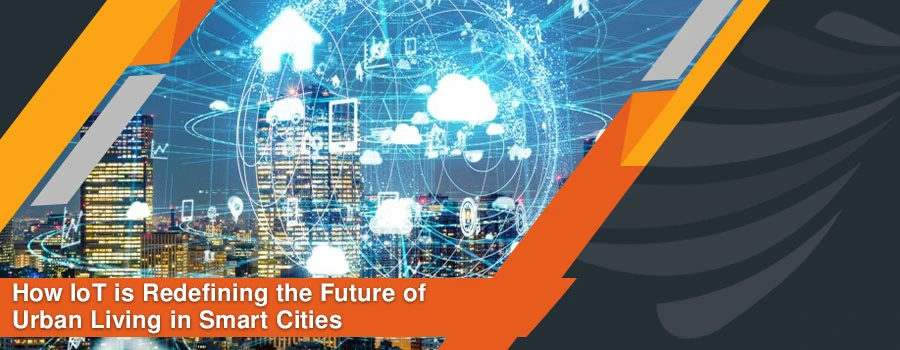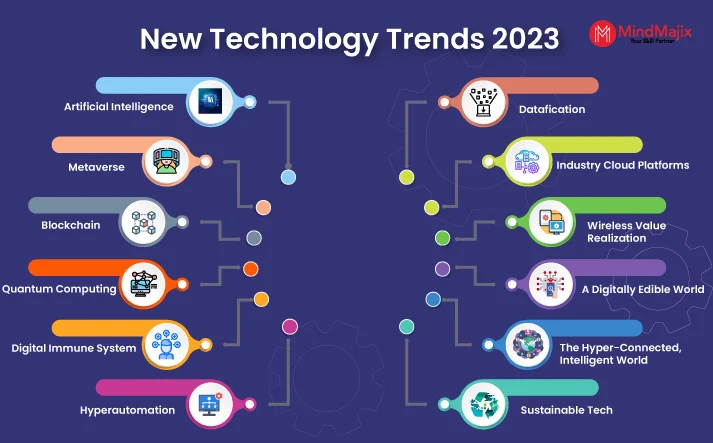Smart cities are transforming the way urban environments function, integrating technology and data to enhance the quality of life for residents. This article explores various aspects of smart cities and their impact on urban living.
The Role of IoT in Smart Cities
The Internet of Things (IoT) plays a crucial role in the development of smart cities. By connecting various devices and systems, IoT enables real-time data collection and analysis, which helps city planners make informed decisions. For instance, smart sensors can monitor traffic patterns, air quality, and energy consumption, allowing for more efficient resource management.
Moreover, IoT facilitates communication between different city services, such as public transportation and emergency services. This interconnectedness not only improves operational efficiency but also enhances the overall safety and well-being of residents. As cities continue to adopt IoT technologies, the potential for innovation in urban living becomes limitless.
Sustainable Urban Development
Sustainability is a key focus in the design of smart cities. By utilizing renewable energy sources, implementing green building practices, and promoting sustainable transportation options, smart cities aim to reduce their environmental impact. For example, solar panels and wind turbines can power city infrastructure, while electric public transport systems can decrease carbon emissions.
Additionally, smart waste management systems can optimize collection routes and reduce landfill waste. By prioritizing sustainability, smart cities not only contribute to a healthier planet but also create a more livable environment for their residents. This commitment to sustainability is essential for future urban development.
Enhancing Public Transportation
Smart cities are revolutionizing public transportation through the integration of technology. Real-time tracking systems provide commuters with up-to-date information on bus and train schedules, reducing wait times and improving overall efficiency. Mobile applications allow users to plan their journeys seamlessly, making public transport a more attractive option.
Furthermore, smart cities are investing in multimodal transportation solutions, such as bike-sharing programs and electric scooters, to promote alternative modes of travel. By enhancing public transportation, smart cities aim to reduce traffic congestion and improve air quality, ultimately leading to a more sustainable urban environment.
Smart Energy Management
Energy management is a critical component of smart city initiatives. By implementing smart grids and energy-efficient technologies, cities can optimize energy consumption and reduce costs. Smart meters allow residents to monitor their energy usage in real-time, encouraging more responsible consumption habits.
Additionally, cities can leverage data analytics to predict energy demand and adjust supply accordingly. This proactive approach not only enhances energy efficiency but also contributes to the overall sustainability of urban living. As smart energy management systems become more prevalent, cities can significantly reduce their carbon footprint.
Data Privacy and Security Concerns
As smart cities rely heavily on data collection and analysis, concerns regarding data privacy and security have emerged. The vast amount of information gathered from residents can pose risks if not managed properly. Ensuring that data is collected, stored, and used responsibly is essential for maintaining public trust.
Smart cities must implement robust cybersecurity measures to protect sensitive information from potential breaches. Additionally, transparency in data usage policies can help alleviate concerns among residents. Balancing innovation with privacy is crucial for the successful implementation of smart city initiatives.
Citizen Engagement and Participation
Engaging citizens in the decision-making process is vital for the success of smart cities. By utilizing digital platforms and social media, city officials can gather feedback and involve residents in urban planning initiatives. This participatory approach fosters a sense of community and ensures that the needs of all citizens are considered.
Moreover, citizen engagement can lead to innovative solutions to urban challenges. When residents feel empowered to contribute to their city’s development, they are more likely to support and participate in smart city initiatives. This collaboration between citizens and city officials is essential for creating a thriving urban environment.
Health and Well-being in Smart Cities
Smart cities prioritize the health and well-being of their residents through various initiatives. By integrating health technologies, such as telemedicine and health monitoring systems, cities can improve access to healthcare services. Additionally, smart city designs often include green spaces and recreational areas, promoting physical activity and mental well-being.
Furthermore, data analytics can help identify public health trends and inform city officials about potential health risks. By addressing health concerns proactively, smart cities can create a healthier environment for their residents, ultimately enhancing the quality of urban living.
The Future of Smart Cities
The future of smart cities is promising, with continuous advancements in technology and urban planning. As cities evolve, the integration of artificial intelligence, machine learning, and big data will further enhance urban living. These technologies will enable cities to become more adaptive and responsive to the needs of their residents.
Moreover, the global push for sustainability and resilience will drive the development of smart cities. By embracing innovation and prioritizing the well-being of their citizens, smart cities can redefine urban living for generations to come. The journey towards smarter, more sustainable cities is just beginning.
| Aspect | Description |
|---|---|
| Definition | Smart cities utilize digital technology to enhance performance, efficiency, and quality of life in urban areas. |
| Technology Integration | Incorporation of IoT devices, sensors, and data analytics to monitor and manage city services. |
| Transportation | Smart traffic management systems reduce congestion and improve public transport efficiency. |
| Energy Management | Smart grids and renewable energy sources optimize energy consumption and reduce carbon footprints. |
| Public Safety | Enhanced surveillance and emergency response systems improve safety and security for residents. |
| Citizen Engagement | Digital platforms facilitate communication between citizens and local governments, promoting transparency. |
| Environmental Sustainability | Smart cities implement green technologies and practices to promote sustainable urban living. |
| Challenges | Data privacy concerns, high implementation costs, and the digital divide are significant challenges. |
| Future Outlook | Continued advancements in technology and increased investment will shape the future of urban living. |




